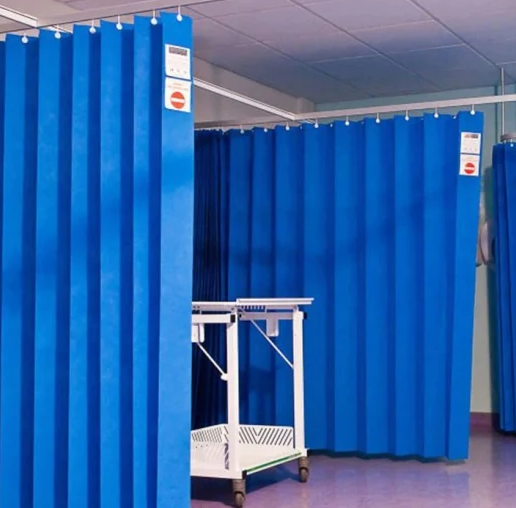How Managed Security Services Drive Efficiency and Protection in Healthcare

Protecting sensitive patient data and ensuring the security of digital systems are crucial in the healthcare industry. With the increasing frequency of cyberattacks and strict regulatory requirements like HIPAA, many healthcare organizations are turning to managed security services (MSS) to enhance their defenses.
Managed security services provide round-the-clock monitoring, threat detection, and proactive vulnerability management, allowing healthcare providers to focus on patient care rather than the complexities of cybersecurity. By partnering with Cybersecurity Denver experts, healthcare organizations can reduce operational costs, improve compliance, and access the latest security technologies and expertise.
In this blog, we will explore managed security services and how they enhance efficiency and protection in healthcare, ensuring data safety and operational resilience.
What Are Managed Security Services (MSS)?
Managed Security Services (MSS) involve outsourcing an organization’s cybersecurity operations to an external provider. These service providers, known as Managed Security Service Providers (MSSPs), monitor and manage an organization’s security systems, providing constant protection against cyber threats. MSSPs offer a variety of services, including threat detection and response, vulnerability management, compliance monitoring, and incident response.
8 Benefits of Managed Security Services for Healthcare
- 24/7 Monitoring and Detection
One key way Managed Security Services enhance efficiency and security in healthcare is through 24/7 monitoring and detection. With the constant evolution of cybersecurity threats, round-the-clock monitoring of networks, systems, and data is crucial for promptly identifying and responding to potential security incidents.
By leveraging advanced technologies and specialized expertise, Managed Security Services providers can detect suspicious activities, potential breaches, or vulnerabilities in real time. This proactive approach helps prevent security incidents and minimizes the impact of any breaches that may occur. In the healthcare sector, 24/7 monitoring and detection play a vital role in maintaining the confidentiality, integrity, and availability of healthcare data.
- Compliance with Healthcare Regulations
Compliance with healthcare regulations is a critical aspect of ensuring the security and efficiency of operations in the healthcare industry. Managed Security Services are essential for helping healthcare organizations adhere to stringent regulatory requirements such as HIPAA and GDPR.
By partnering with a managed security service provider that specializes in healthcare, organizations can benefit from expert guidance on maintaining compliance, implementing robust security measures, and safeguarding sensitive patient data. This proactive approach helps avoid costly fines and penalties, while also building trust among patients by demonstrating a commitment to protecting their confidential information.
- Proactive Vulnerability Management
Proactive vulnerability management is a key component of how Managed Security Services enhance efficiency and security in healthcare. By identifying and addressing potential vulnerabilities before they can be exploited, healthcare organizations can significantly reduce the risk of data breaches and cyberattacks.
Managed Security Services employ advanced tools and technologies to continuously monitor systems for vulnerabilities, allowing for timely patching and remediation. This proactive approach protects sensitive patient data and ensures compliance with industry regulations such as HIPAA. As cyber threats continue to evolve, proactive vulnerability management remains essential in safeguarding healthcare systems and maintaining patient trust.
- Reduction in Operational Costs
One fundamental way that Managed Security Services enhance efficiency and security in healthcare is by reducing operational costs. By outsourcing security services to a specialized provider, healthcare organizations can leverage economies of scale and expertise that would be expensive to develop in-house.
This approach leads to streamlined operations, lower overhead expenses, and optimized security protocols, ultimately resulting in cost savings for the organization. By utilizing the latest technologies and best practices offered by managed security service providers, healthcare entities can strengthen their security posture and better protect sensitive patient data from potential cyber threats.
- Enhanced Staff Awareness and Training
Enhanced staff awareness and training are critical components of how managed security services can improve efficiency and security in healthcare settings. By offering comprehensive training programs, healthcare organizations can ensure that their staff members are well-informed about cybersecurity best practices, data privacy regulations, and potential threats.
This increased awareness empowers employees to promptly identify and respond to security incidents, reducing the risk of data breaches or cyber-attacks. Additionally, ongoing training helps to keep staff updated on the latest security measures and protocols, contributing to a more secure and efficient healthcare environment.
- Advanced Data Encryption and Protection
Advanced data encryption and protection are key ways in which managed security services enhance efficiency and security in healthcare. With the rising threat of cyberattacks and data breaches, it is crucial to ensure that sensitive patient information is encrypted and protected.
Managed security services provide advanced encryption methods to safeguard data both at rest and in transit, thereby reducing the risk of unauthorized access or data theft. By implementing robust encryption protocols, healthcare organizations can comply with HIPAA regulations and protect patient confidentiality, ultimately improving overall efficiency and security within the healthcare sector. If you want to protect your business data, contact the Managed IT Services Denver team.
- Managed Detection and Response (MDR)
Managed Detection and Response (MDR) is an essential part of Managed Security Services that greatly improves efficiency and security in the healthcare industry. MDR services offer continuous monitoring, threat detection, and fast response to security incidents, enabling healthcare organizations to identify and address cyber threats in real-time.
By utilizing advanced technologies and expertise, MDR services help healthcare providers proactively identify and mitigate security risks, ensuring the protection of sensitive patient data and compliance with regulations such as HIPAA.
- Improved Scalability and Security
Managed Security Services play a vital role in enhancing security and efficiency in the healthcare sector, particularly through improved scalability and robust security measures. As digital transformation rapidly progresses in healthcare, the demand for scalable security solutions has become critical.
Managed Security Services providers deliver adaptable solutions that can meet the changing needs of healthcare organizations, ensuring that security remains strong as the organization grows. Furthermore, MSS offers advanced security features like real-time threat detection, incident response, and compliance management, which strengthen the overall security posture of healthcare entities.
Conclusion
Managed security services (MSS) are vital for enhancing efficiency and security in the healthcare industry. By providing 24/7 monitoring, threat detection, compliance support, and proactive vulnerability management, MSS helps healthcare organizations protect sensitive patient data and uphold strong security measures. These services contribute to reduced operational costs, improved staff training, and compliance with strict healthcare regulations like HIPAA. As healthcare organizations encounter increasing cyber threats, partnering with managed security service providers becomes crucial for maintaining operational resilience, ensuring data security, and achieving long-term efficiency.

